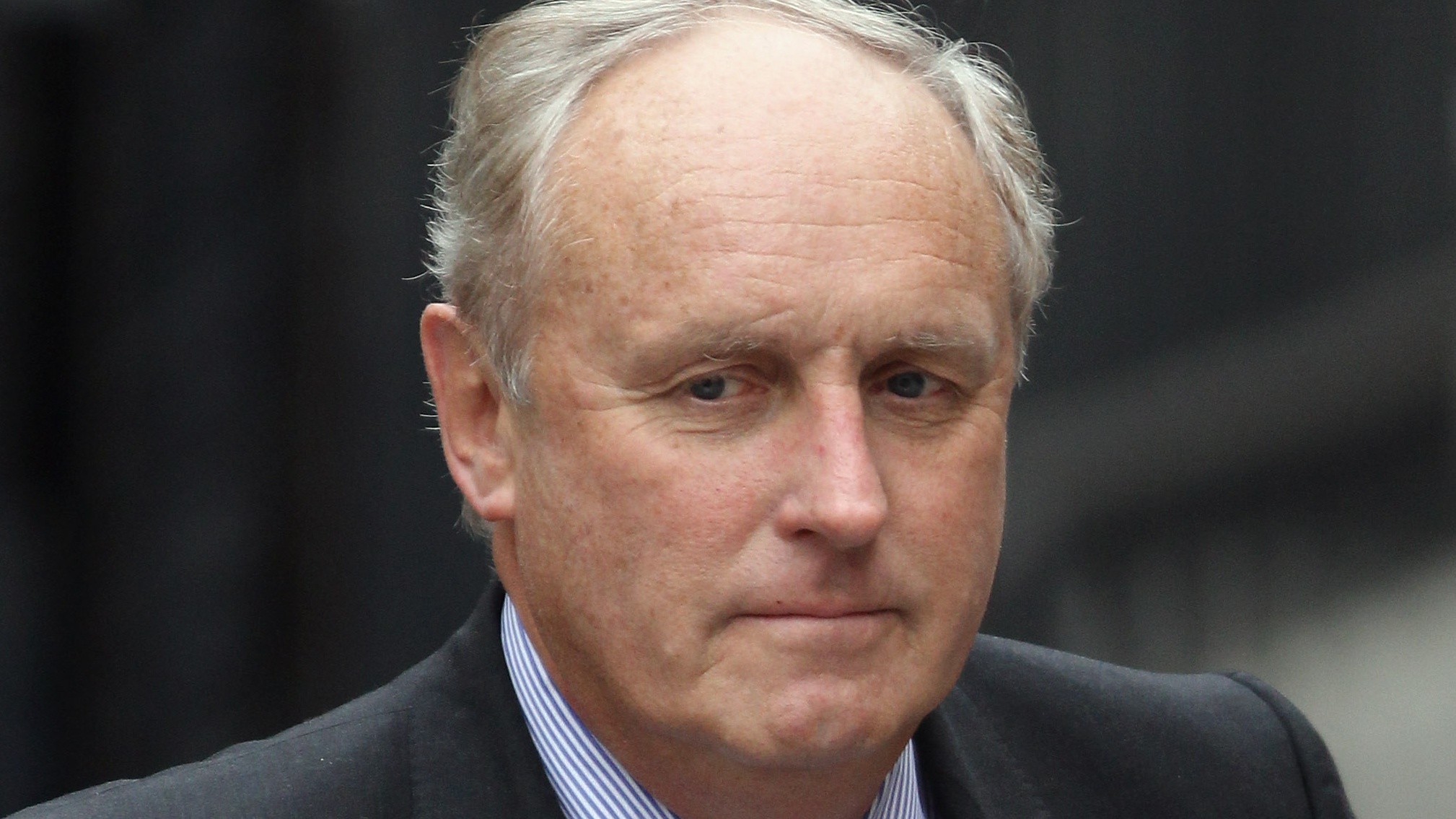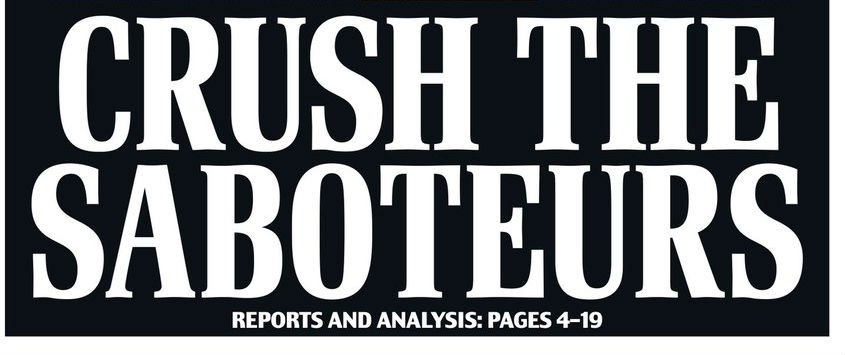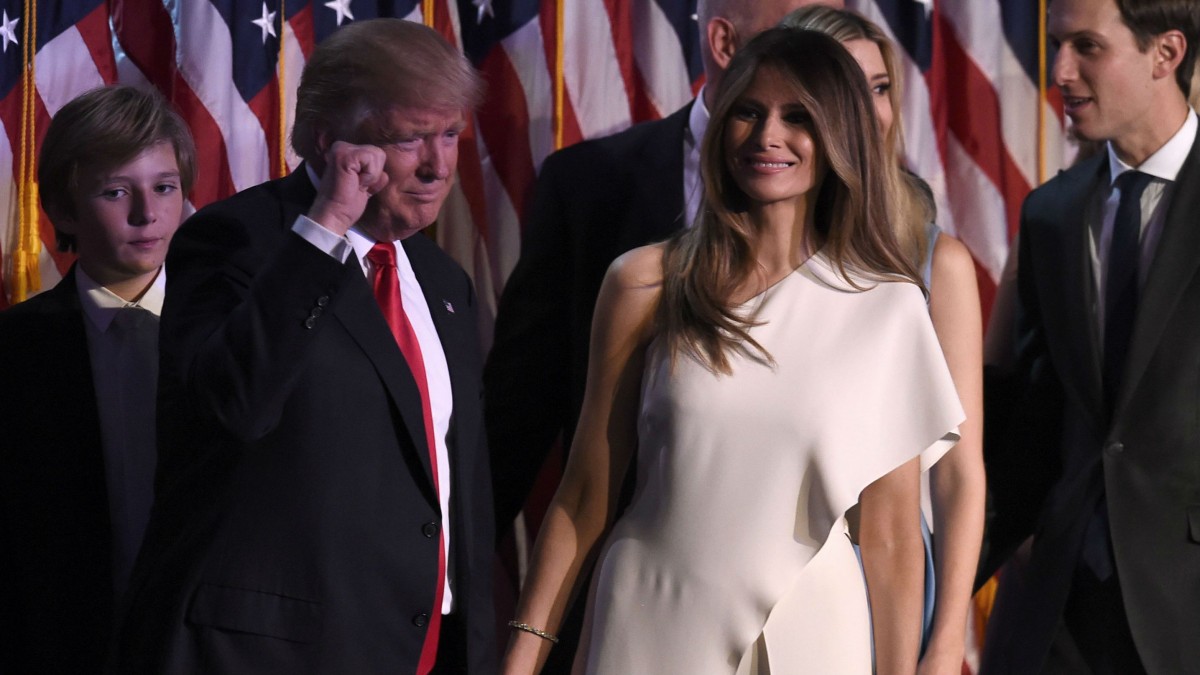Paul Dacre: ‘last of his kind’ tabloid heavyweight snubbed for a peerage
The formidable but controversial editor may still be included in another honours list due to be published at Christmas

A free daily email with the biggest news stories of the day – and the best features from TheWeek.com
You are now subscribed
Your newsletter sign-up was successful
Former Daily Mail editor Paul Dacre appears to have been snubbed for a widely anticipated honour after failing to appear on Boris Johnson’s political honours list, which saw a string of former MPs and party donors awarded a peerage.
A heavyweight of tabloid news, Dacre was editor-in-chief of the Daily Mail for 26 years before becoming chair and editor-in-chief of the paper’s parent company, Associated Newspapers, in 2018.
He had been “widely tipped” to be made a peer but faced calls for the honour to be delayed or suspended after several high-profile public figures, including Prince Harry and Doreen Lawrence, launched legal action against Associated Newspapers for misuse of their private information, including an accusation that listening devices had been secretly placed in private homes, said The Guardian.
The Week
Escape your echo chamber. Get the facts behind the news, plus analysis from multiple perspectives.

Sign up for The Week's Free Newsletters
From our morning news briefing to a weekly Good News Newsletter, get the best of The Week delivered directly to your inbox.
From our morning news briefing to a weekly Good News Newsletter, get the best of The Week delivered directly to your inbox.
Editor is ‘the last of his kind’
Dacre served as the Daily Mail’s formidable editor for 26 years, and throughout his tenure was famed for his “expletive-heavy outbursts at colleagues” which staff nicknamed “the vagina monologues”, thanks to the editor’s choice of language towards those who have gained his ire, reported The Independent.
He has been variously described as both the “greatest newspaper editor of his generation” or by critics as simply “peddling prejudice”, said the paper, with Labour’s former director of communications Alastair Campbell describing the Daily Mail as a “national poison”.
Born on 14 November 1948 in north London, Dacre won a scholarship to University College School in Hampstead and “did work experience in the holidays at the Daily Express and Sunday Express”, where his father worked, said The Guardian. After studying English at the University of Leeds he joined the Daily Express, before an influential period in the United States covering the 1976 presidential election “which imparted a life-long belief in self-reliance and the power of the free market”, said the paper.
He then began to work for the Mail, becoming its news editor, before a period editing the Evening Standard. After the proprietor of The Times, Rupert Murdoch, attempted to “poach” Dacre to work for his paper in 1992, Dacre was handed the role of editor-in-chief on the Mail where he remained until 2018.
A free daily email with the biggest news stories of the day – and the best features from TheWeek.com
In many ways, Dacre was the “last of his kind” wrote media editor Amol Rajan for the BBC when Dacre stepped down from his role as editor of the Mail in 2018. “When he entered the profession in the early 1970s, British newspapers had a degree of influence that they do not have now” and throughout his time at the paper, his influence was such that “he both channelled and shaped the conservatism of middle-class Britain beyond London”, said Rajan. And although he is undoubtedly “hated by many of his fellow countrymen” we should not forget “the verdict of millions of readers who considered his paper value for money for decades”.
Under his editorship, in 2013 the Mail ran an article that was heavily critical of Ralph Miliband – the late father of then-Labour leader Ed Miliband, and who had arrived in the UK in 1940 as a refugee from the holocaust – dubbing him “the man who hated Britain”. The article drew heavy criticism from across the political spectrum.
But Dacre was also widely lauded for his paper’s campaign to bring the killers of Stephen Lawrence to justice. In 1997, the paper plastered the five men accused of the teenager’s killing on their front page, running the headline: “Murderers: The Mail accuses these men of killing”. It continued: “If we are wrong, let them sue us.”
Action against Associated Newspapers
Dacre returned to take up his role at Associated Newspapers in 2021, which had been hit by a lawsuit alleging “gross breaches of privacy” from several high-profile figures including Elton John, Liz Hurley, Sadie Frost, and Doreen Lawrence, mother of Stephen Lawrence.
Given the Mail’s campaign to bring her son’s killers to justice, Lawrence’s legal action against Associated Newspapers is “particularly notable” said The Guardian, and it is “understood the allegations brought by Lawrence include information gathered about her, her family and associates before the Mail supported the family” with the now infamous “Murderers” headline, added the paper.
Associated Newspapers has strongly denied the allegations. A spokesman for the company said: “These unsubstantiated and highly defamatory claims – based on no credible evidence – appear to be simply a fishing expedition by claimants and their lawyers, some of whom have already pursued cases elsewhere.”
‘Infelicitous dalliance with the Blob’
Downing Street had been planning to nominate Dacre, alongside about a dozen others, for a peerage “as recently as Friday”, reported The Telegraph, and although there appears to have been a “late change of heart”, it is thought Dacre is likely to appear on Johnson’s resignation honours list, which was submitted to the House of Lords Appointments Commission this week, and is set to be announced around Christmas.
Dacre had been Johnson’s top choice to take over as the chairman of media watchdog Ofcom but was ultimately rejected for the job by a Civil Service recruitment panel.
The Times quoted him as describing his experience of applying for the role as an “infelicitous dalliance with the Blob” – a term used to describe those working in Whitehall – and claimed that senior figures in Whitehall wanted to exclude anyone with right-wing views and “strong convictions” from being appointed to a senior public sector role.
-
 The Gallivant: style and charm steps from Camber Sands
The Gallivant: style and charm steps from Camber SandsThe Week Recommends Nestled behind the dunes, this luxury hotel is a great place to hunker down and get cosy
-
 The President’s Cake: ‘sweet tragedy’ about a little girl on a baking mission in Iraq
The President’s Cake: ‘sweet tragedy’ about a little girl on a baking mission in IraqThe Week Recommends Charming debut from Hasan Hadi is filled with ‘vivid characters’
-
 Kia EV4: a ‘terrifically comfy’ electric car
Kia EV4: a ‘terrifically comfy’ electric carThe Week Recommends The family-friendly vehicle has ‘plush seats’ and generous space
-
 Chioma Nnadi: new 'head' of British Vogue at centre of power struggle
Chioma Nnadi: new 'head' of British Vogue at centre of power struggleEdward Enninful 'shot for the moon and lost' as Anna Wintour promotes 'loyal ally'
-
 Piers Morgan: five things you might not know about the contentious broadcaster
Piers Morgan: five things you might not know about the contentious broadcasterIn the Spotlight Alastair Campbell has accused the former Daily Mirror editor of being ‘two-faced’ at the High Court
-
 The conspiracy theorists cashing in on YouTube’s algorithms
The conspiracy theorists cashing in on YouTube’s algorithmsIn the Spotlight One anti-vaccination campaigner nets £500,000 a year from advertising on video platform
-
 Backlash over Daily Mail 'Crush the saboteurs' front page
Backlash over Daily Mail 'Crush the saboteurs' front pageSpeed Read Theresa May leads the criticism over the right-wing newspaper's response to call for snap general election
-
 Melania Trump vs the Daily Mail: What's going on?
Melania Trump vs the Daily Mail: What's going on?In Depth Ethics experts question First Lady's motivations for lawsuit against UK newspaper